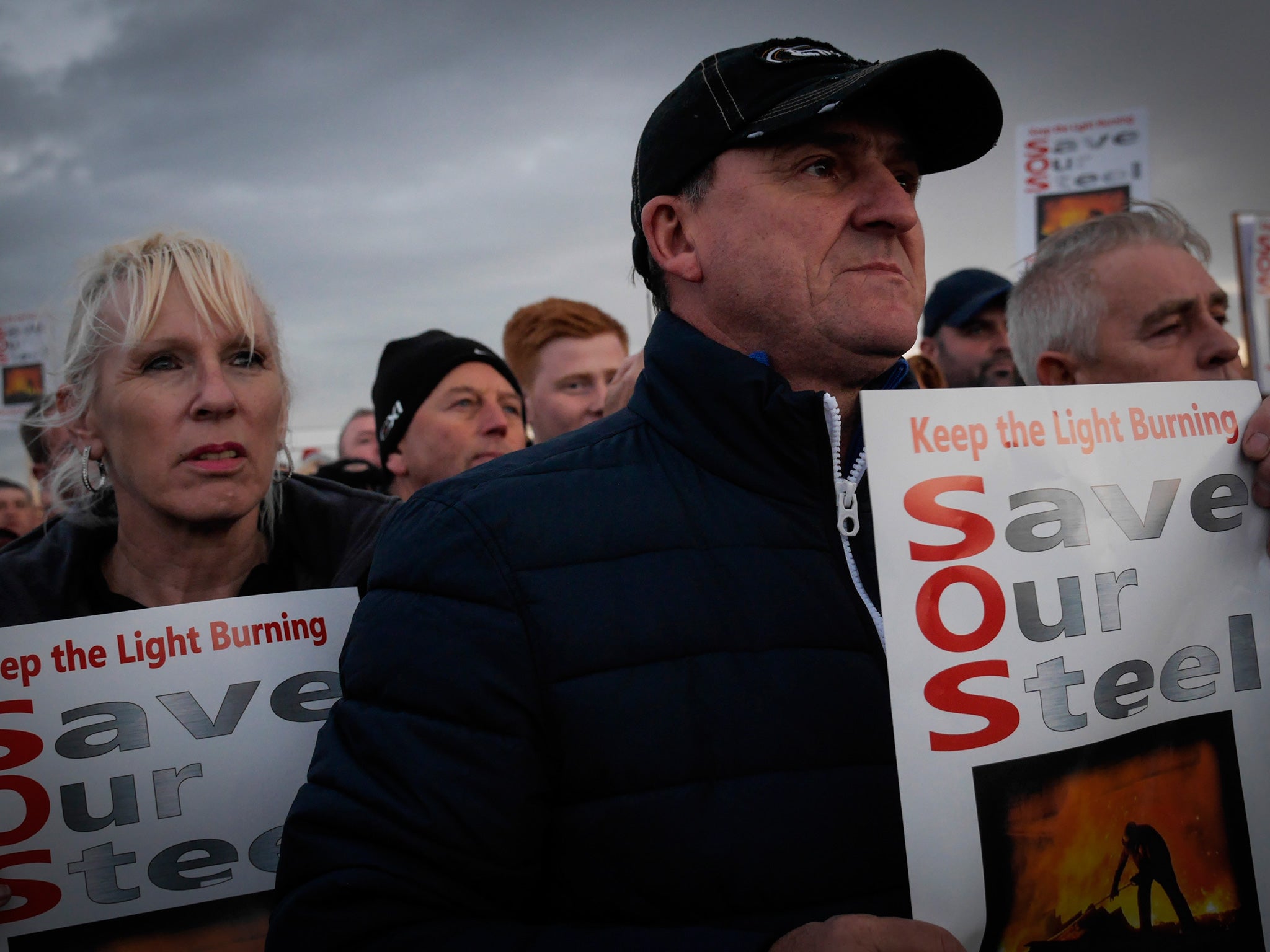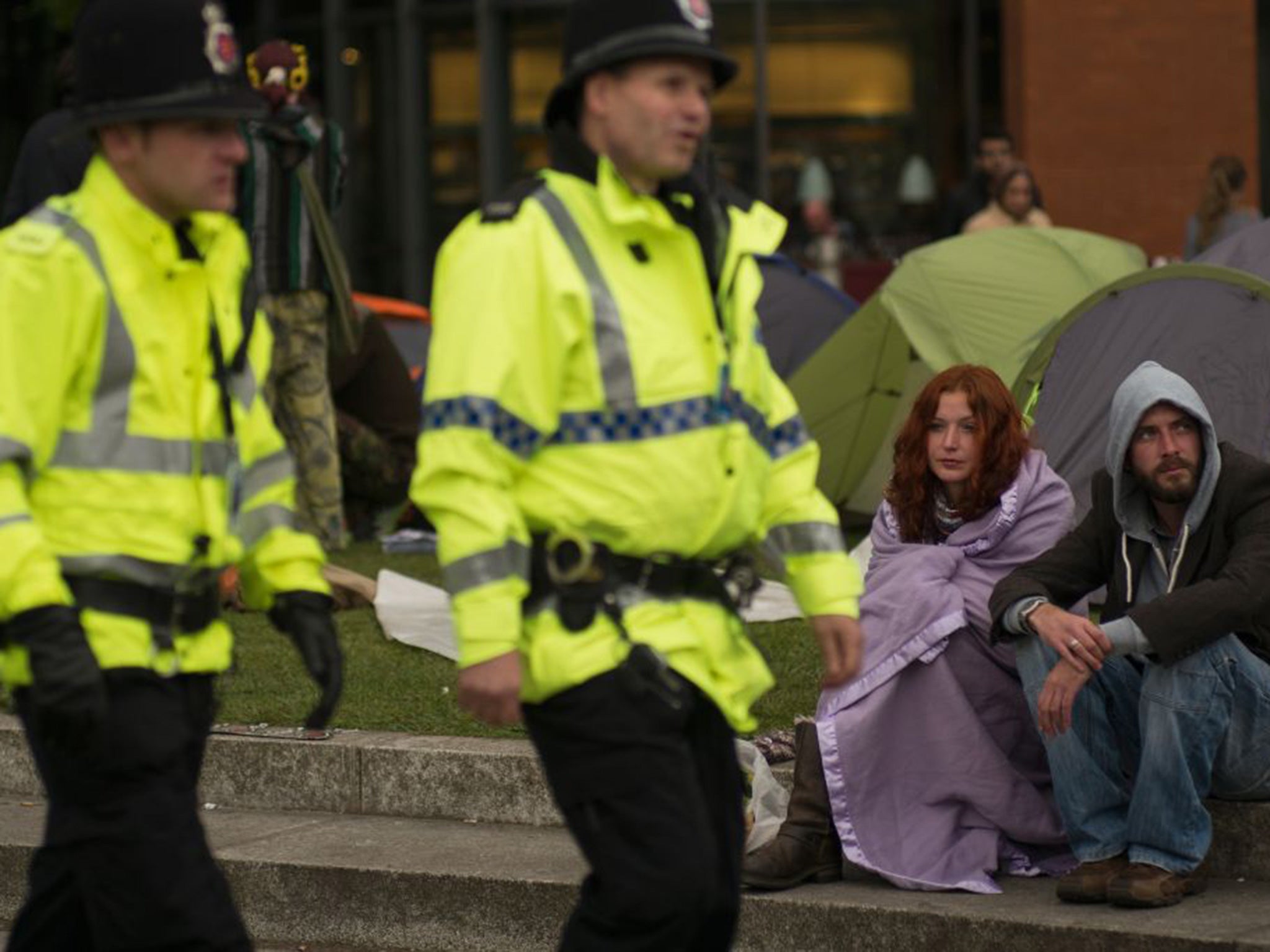Tory claims that they represent working people will be a hard sell when 3.2m people see their tax credits cut
It is important to stress that the people affected are working: they are striving, to use the Chancellor’s term, for a living, rather than wholly dependent on the state


Your support helps us to tell the story
From reproductive rights to climate change to Big Tech, The Independent is on the ground when the story is developing. Whether it's investigating the financials of Elon Musk's pro-Trump PAC or producing our latest documentary, 'The A Word', which shines a light on the American women fighting for reproductive rights, we know how important it is to parse out the facts from the messaging.
At such a critical moment in US history, we need reporters on the ground. Your donation allows us to keep sending journalists to speak to both sides of the story.
The Independent is trusted by Americans across the entire political spectrum. And unlike many other quality news outlets, we choose not to lock Americans out of our reporting and analysis with paywalls. We believe quality journalism should be available to everyone, paid for by those who can afford it.
Your support makes all the difference.In Manchester this week, David Cameron’s party will launch Conservative Workers and Trade Unionists, a new movement for those hardworking people the Prime Minister and Chancellor are always praising.
After winning power on the back of a campaign to attract working people, George Osborne used his summer Budget to celebrate “blue collar conservatism”. It is easy to see why the Tories are casting themselves as the party of the workers – not least because they feel they can portray Jeremy Corbyn as anti the defence industry.
Under the Labour leader’s vision for nuclear disarmament, Britain’s defence industry workers would be redeployed in other sectors. Yet, when Corbyn recently went to visit shop stewards at BAE Systems, the company which makes Typhoon jet fighters, to persuade them that his plan for world peace was the right one, they were furious that this man failed to understand the global jobs chain and were worried that new posts would not be found to match their skills or wages.

Indeed, given the closure of one steel works, SSI, in Redcar last week, what would Corbyn say to workers at another plant, Tata Steel in Port Talbot, who manufacture armour plating to protect the vehicles of British soldiers from machine gunfire? The defence industry and its supply chain employ 300,000 people; that’s a lot of people to redeploy.
But the Tories shouldn’t be so full of swagger in their claim to represent working people. This Christmas, 3.2 million of Britain’s lowest-paid families will get letters telling them how much they will lose in tax credits from April. As Christmas presents go, it’s a real stinker: the average loss per household will be £1,350, according to figures from the House of Commons Library.
Many of these families are single-earner households, where one parent stays at home to look after their children. The deductions will mean these stay-at-home parents will be forced to go out to find work, only to find a vast share of their earnings will go on childcare. The Government’s new 30 hours a week of free childcare applies to three and four-year-olds, not younger children, and it doesn’t come into effect until 2017. In any case, as a report from the Institute for Public Policy Research reveals that the Government has a shortfall of around £1bn in paying for this new childcare pledge.
The House of Commons figures, obtained by Frank Field, Labour MP and chairman of the Work and Pensions Select Committee, show that under the tax credit cuts, families earning £10,000 or less will be £1,484 a year worse off, while those on £25,000 a year will lose £2,457. The Treasury claims that the new national “living wage” will balance out these cuts, but analysis by the Institute for Fiscal Studies suggests otherwise. Its figures show that in-work households will lose an average of £750 a year from all the tax and benefit changes being introduced by Osborne, while the average gain from the national living wage will be £200 a year – covering just 27 per cent of losses and leaving the average family £550 a year worse off.
It is important to stress that the people affected are working: they are striving, to use the Chancellor’s term, for a living, rather than wholly dependent on the state.
A planned Tory rebellion last month on the tax credit cuts fizzled out after Osborne won over most of the party’s MPs. But the revolt is back on. Boris Johnson, who is likely to become Osborne’s main leadership rival, is going into battle with the Chancellor on this issue. Osborne (and indeed Johnson) should be only too aware that the tax credit cuts, with their punishing effect on the Conservative Party’s new swathes of blue-collar voters, could turn into another disaster, like the 10p tax debacle which helped destroy Gordon Brown.
Putting on a brave face
The tax credit row and EU referendum splits look set to overshadow what should have been a second honeymoon conference for the Prime Minister. Despite this, Tory MPs are pinching themselves at how tumultuous Labour’s conference was last week.
If you are a Labour moderate who has declined to serve in Corbyn’s new shadow cabinet, how do you take his repeated assurances that he is against mandatory reselections? One close ally of Corbyn told me that Labour MPs who voted against the leader on military action in Syria, for example, would be “very brave”. This sounds as reassuring as a mafia henchman asking someone if they wouldn’t mind sitting in the front seat of a car while he sat behind them in the back.
A bit of a pig and a poll
Even the probably untrue story about Cameron and the pig’s head failed to lift the spirits of Labour Party faithful.
One former parliamentary candidate – who failed to win on 7 May – found himself sitting opposite a Tory-supporting woman and her husband on the train to Brighton. When the former candidate told the woman he was off to the Labour conference, her husband lowered his Daily Telegraph and peered down his glasses at him. “Just tell me one thing,” he said. “It has been claimed that the Prime Minister put his penis into the mouth of a dead pig. So why are you still behind in the polls?”
The Labour candidate replied, ruefully: “You can’t really argue with that.”
Long walk to failure
Even if Corbyn is ousted as leader at some point before 2020, Labour has a monumental battle to win the next election. The idea of a Michael Howard-style caretaker, who could take over in 2018, was gaining traction in Brighton but many believe this MP would only be able to minimise losses, rather than win. As one shadow minister put it, Labour’s electoral problems are so deep, particularly in Scotland, that: “Nelson Mandela could be leader of our party and we would still not win”.
Join our commenting forum
Join thought-provoking conversations, follow other Independent readers and see their replies
Comments